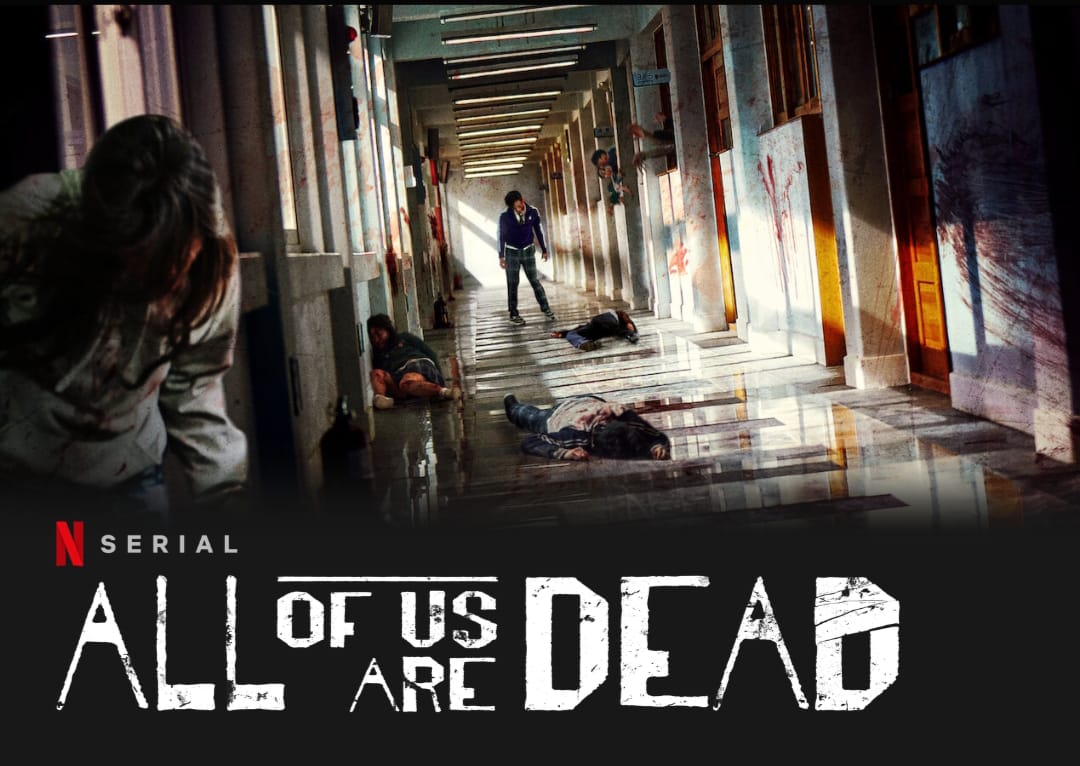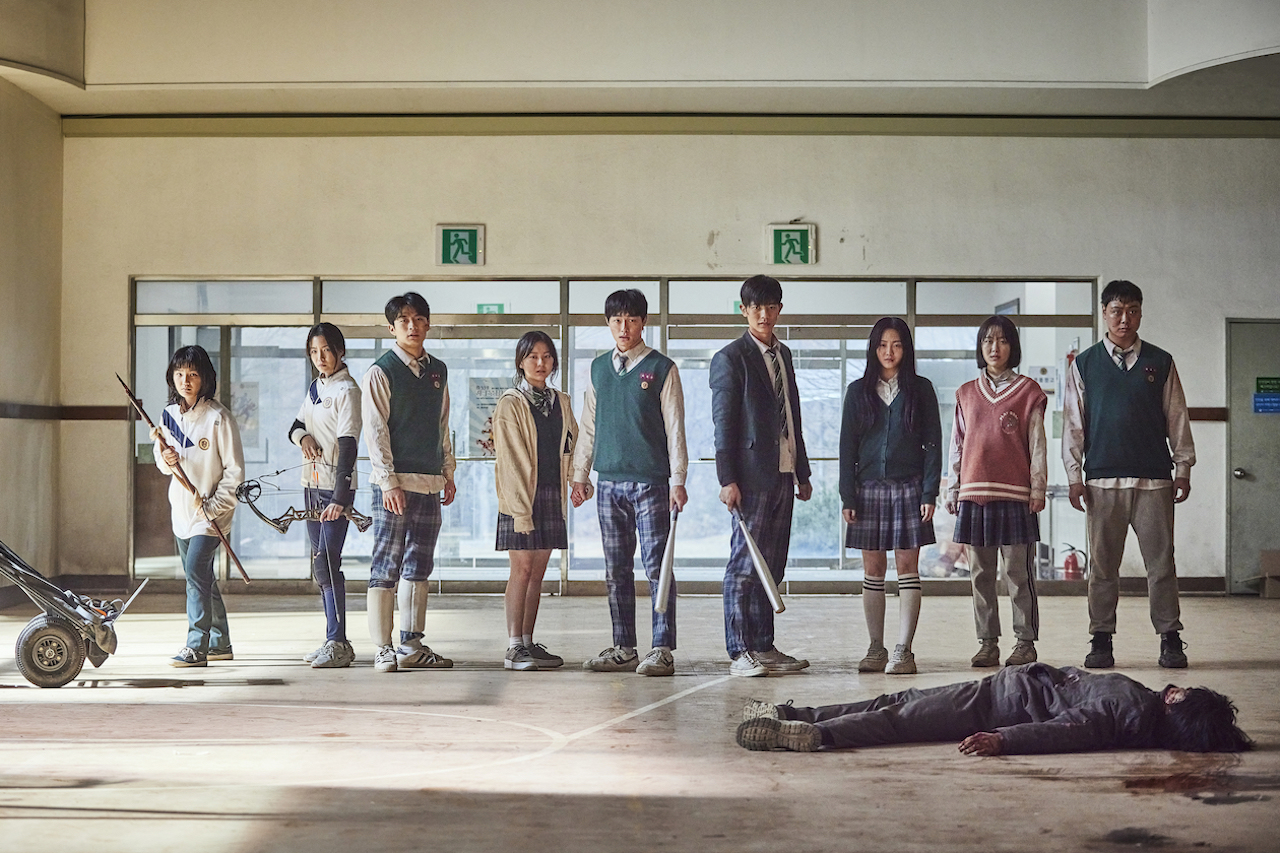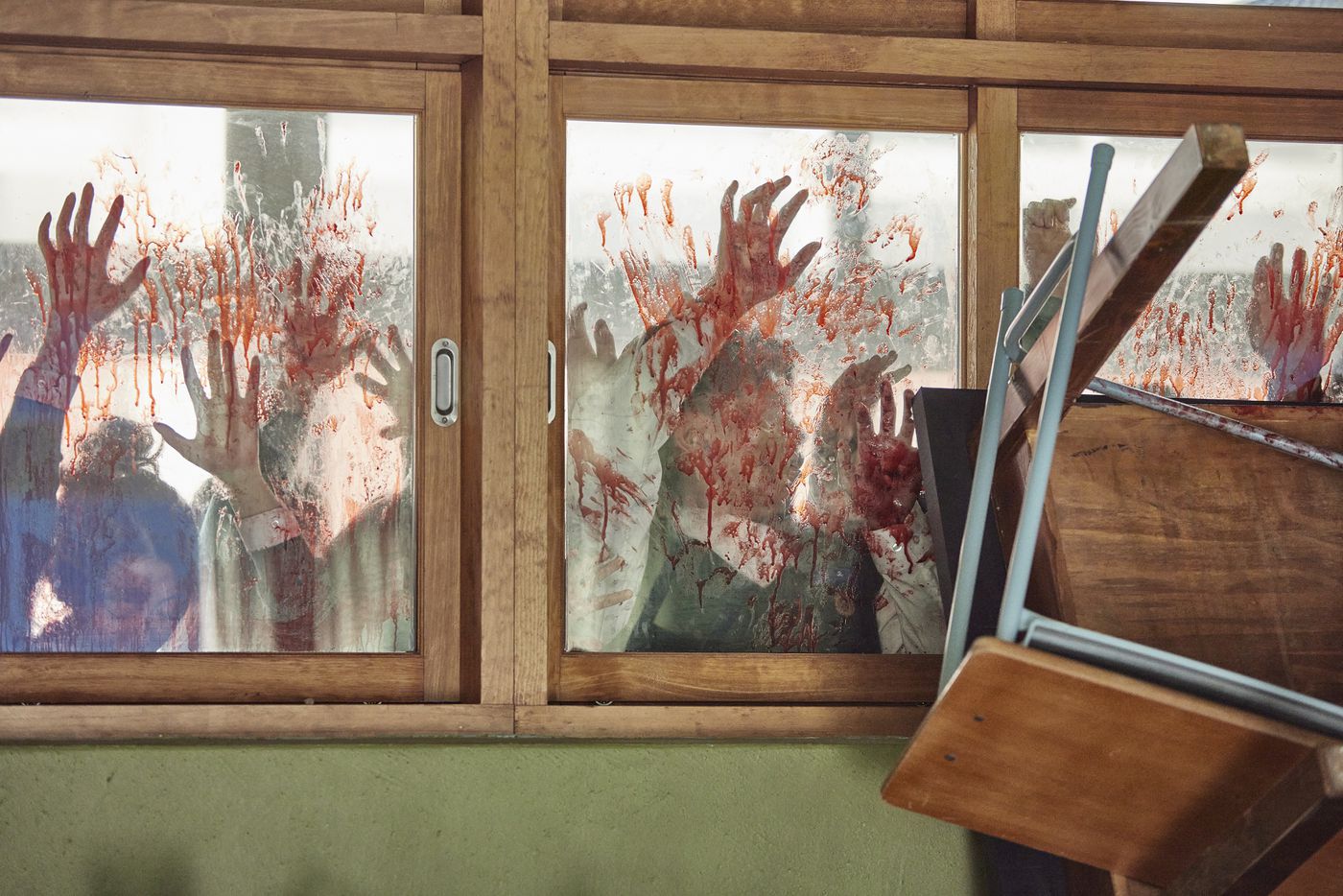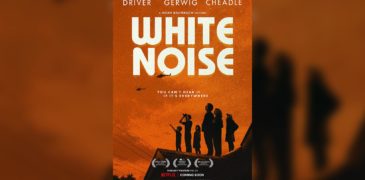
Netflix’s Korean TV selection is continuously demonstrating tremendous choice and that’s most evident from the intense zombie uprising of All of Us Are Dead – following the success of other South Korean zombie media such as Kingdom and Alive. Subgenre fatigue with yet another use of the “Z” word is completely subverted by a worthwhile application of familiar tropes, read our full breakdown of why you should care there’s a new zombie show to see! We are definitely happy South Korea’s zombie obsession started with Train to Busan!

SYNOPSIS
It starts with one high kid, and spreads fast with his high school as the epicentre. The outbreak and every terrible event it causes unfolds in detail on the screen, along with the underlying causes that led to the creation of this disease and the social failings that help spread it out of control. Where most shows skip over the start of an outbreak, All of Us Are Dead is here to give zombie fans what they are always hungry for but constantly denied.
This review contains spoilers for the final fate of a side character.
PRODUCTION QUALITY
Luke: One thing stands out in my memory here: You’ve got to love something that flat out uses the “Z” word. It feels like a small thing, but it’s a hard line which lets you know the team involved means business when it comes to exploring the ideas a zombie outbreak represents. Everything looks great here except for some slightly raw CGI at times, pretty good for a TV series but still noticeable. This may throw off suspension of disbelief at times, but it’s used to show off how reckless the infected become in ways unsafe for actors, pushing the action further in a satisfying way. The actors are good, the gore doesn’t hold back, the story contains surprises and goes hard on zombie tropes, and the crew turn this town into a visually impressive chaotic sandbox to play out solid ideas in. In short: Everything here is good at worst and frequently great!
The main school setting being used is a standout for the show on multiple levels. The simple technical usage of the location is more than just convenient for budgeting; high school as a whole becomes a societal microcosm to explore. The interpersonal dynamics in place before the disaster give a solid foundation for the drama that will underpin the desperation to survive, and how everyone will react to either help or hinder everyone else. As everything goes increasingly wrong, these dynamics develop in intriguing ways. Seeing people transcend their former limitations makes for compelling character growth, whereas on the flip side, people who cannot grow tend to be doomed in an interesting use of the typically simplistic subgenre for metaphor.
Lisa:
My favorite part of this series, from a technical standpoint, is the art direction. The cinematography, choreography, and editing are highly stylized and truly compelling. For instance, there is a scene in which a bully chases one of the heroes on top of book cases through the library, as if to say they are decimating their previous education.
However, the strongest element of this series is the thematic content. Each episode adds a new layer and a deeper understanding. At first, it comes off as a simple case of Lord of the Flies style story, in which teenagers act the way they’ve always wanted to, but were confined by society. However, as the series goes on, each character is given more depth and understanding. It becomes much more The Breakfast Club than Battle Royale. The series begins exploring the value different people bring to life. Adults bring wisdom, but children bring hope. Our heroes — the teenagers — ultimately band together and attempt to keep everyone alive, including the weaker members of the pack.
This is contrasted with the military characters, who continue to ask — is it worth killing some people to save a lot of people? Is suspension of our most basic ideals worth saving our civilization? One of the most profound moments in the series is when the military leader shows some true remorse and inner conflict after his actions (imposing Martial Law, sending bombs into the quarantined area), and commits suicide. Previously painted as a bit of a one-dimensional villain, he is actually a soldier who believes in his mission above all else, but cannot live with the guilt. Similarly, the politician who is locked up in quarantine appears to be fighting for the “common man,” but has a hidden agenda of using this crisis to boost her own political career.
Then we are presented with perhaps the most interesting character — the scientist who is responsible for the virus. He was motivated, of course, by good intentions and ideals. He initially wanted to protect the weak, the bullied in society, by finding a way to help them fight back (and bullying is a huge theme in the series). However, he realizes that he has made a Faustian deal with the devil, and doesn’t have the strength to let it go. He does deliver some thoughts on science which are deeply profound, such as, “Science begins with imagination and ends with a mystery.” Like many zombie films and series, perhaps the key takeaway is to respect life and try not to play God.

HOW SCARY IS IT?
Luke: The execution of the zombies is incredibly solid, doing a great job of showing how threatening they are. The effort put into unnatural movement is a great visual signifier, and the impact of just how dangerous someone not holding back from fear of pain or injury as they attack is given a lot of play in action sequences. Themes extend beyond “making a zombie outbreak dangerous is cool” too. As with all the best zombie fiction, zombies are just the scenario – not the whole story in and of themselves. Societal pressures to avoid controversy are a huge part of how the outbreak gets out of hand so fast, which feels far too real as a bonus layer of fridge horror to haunt you in the early hours of the morning. A lot of conflicts from school life exasperate the situation when they should have been put aside, again making an already terrible situation worse in real-feeling ways.
The zombies being shown as dangerous instead of being an excuse for guilt-free killing sprees already gives this an edge many corners of the subgenre lack, but there’s a more cerebral layer of horror from how badly things spiral out of control. Opportunities to control the spread are lost, frequently due to petty reasons, and institutions which otherwise demand respect are worse than useless at protecting the people they lord over. Then, there’s bad faith actors who just cannot help themselves, taking selfish actions that most likely will inevitably doom themselves as much as others but still they play stupid games anyway. It’s a pretty perfect brew to give zombies the edge they’ve typically come to lack.
Lisa:
I believe this series is more uncomfortable than it is frightening. The audience will definitely see themselves in multiple characters, depending on their own values and life experiences, and will be forced to confront the moral ambiguity of many of those values.
I also found this series highly compelling. Although the length may be a source of criticism, I watched it in one go without any issues, as the suspense gripped me and did not let go. There are also several truly sad moments, when the bravest and kindest characters are inevitably killed off. Main characters aren’t really killed off until near the end, which made this series feel more Hamlet than Walking Dead.
Overall, I found this series more suspenseful than scary.
OVERALL THOUGHTS
Luke: It’s High School of the Dead if it just focused on horror over horniness and wasn’t in a rush to get out of the school looking for guns to play with. Basically, it’s the best ideas you can have showing off a zombie outbreak, neither holding back nor diverting to something less interesting that would be an easier option. As the series progresses, it keeps taking you to fresh areas the infection hits, and showing new ways of everything going to hell. It’s everything a zombie fan wants to see in one place, no longer do you need to put up with mediocre takes on the subgenre, every good idea is now in one place to enjoy.
The thorough exploration of a zombie outbreak, from a radiating spread to the inconvenience of needing to use the toilet when you’re trapped, is frequently glossed over in most examples of the subgenre. Yet putting the effort into that minutiae allows All of Us Are Dead to really become something exceptional, its attention to detail on every level puts it a cut above a lot of what its peers have to offer. It comes highly recommended for good reason.
Lisa:
This series is fast-paced and compelling. Technical elements are creative and stylized in interesting manners. The characters are multi-dimensional, and most viewers will see themselves sprinkled throughout the heroes, the villains, and those in-between. Many issues related to the human condition are explored in complex and nuanced ways. There are some truly tragic and uplifting moments, as well as tons of philosophical comments for us to chew on. Overall, this series combines all of those elements which make the zombie genre so popular, while still making it feel fresh.

More From Netflix
Ghost Lab is a supernatural Thai horror that has an extraordinary, unique story accompanied by a massive twist. However, it has an unnecessarily long run time of almost two hours!… While zombies have traditionally been mostly influenced by Western culture, the zombie sub-genre has been getting a resurgence these past few years thanks to South Korea. Zombies are some of… Horror television shows are having a special resurgence in an era of lockdowns perfect for sedentary binging – production values have also been drastically amplified as these start to resemble… Netflix really stepped up its Halloween game this year, launching more exclusive horror series in October 2022 than any other non-themed streaming service in North America. Horror fans have grown… 2020 has been a turbulent year, with many productions being delayed into 2021, or outright canceled. However, that did not stop some great films from coming out in 2020. Here… Life is a Train Wreck In the final days of 2022, most of us were looking toward 2023 with hearts full of hope, and faith that the moment those…Ghost Lab Review (2021) – A Scientific Ghost Horror from Thailand
The Top 5 Most Memorable Zombies of Pinoy Cinema
Best Horror Television Shows of 2021
Guillermo del Toro’s Cabinet of Curiosities – Every Episode Ranked
The Grimoire of Horror Presents: The Best Films of 2020
White Noise (2022) Film Review – Arthouse Existential Horror Comedy
Voting member of the Independent Spirit Awards. Charter subscriber to the Criterion Channel. Silent and pre-code horror enthusiast. In my “real” life, I’m a human rights activist, social scientist, and burlesque performer





